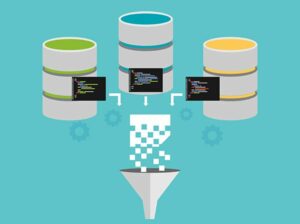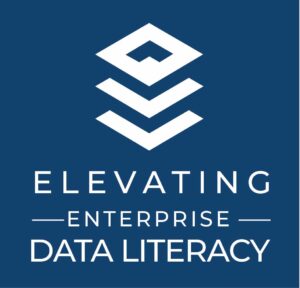

Before the cloud era, businesses had to rely on in-house data centers and internal hardware and software infrastructures to conduct online business. Organizations had to make substantial investments to set up their websites and networks. Additionally, each business had to hire the right people to manage and monitor their infrastructures. This approach not only added to the cost of business, but forced the personnel to tackle complex networking issues, downtimes, security vulnerabilities, limited storage, and limited network bandwidth. Then different types of cloud computing came to the rescue.
In a cloud computing environment, businesses, regardless of their geographical locations, get access to hosted networking infrastructures and services over the internet. Through various charges and subscription models, businesses get on-demand access to remote servers, data storage, databases, networking, and applications. Cloud service providers store and maintain business data assets, and also provide on-demand computing and analytics services from their remote facilities.
Cloud Computing and Its Many Shades
Cloud computing, by virtue of its shared computing resources over the internet, promises numerous benefits such as scalability, flexibility, and economy for businesses of all sizes. There are several types of cloud deployment models such as the public cloud, private cloud, hybrid cloud systems, and multi-cloud models.
- Public cloud environments involve shared storage and computing resources, ideally suited for non-sensitive data processing at affordable costs without compromising data security.
- Private cloud services allow businesses to have access to dedicated virtual storage and dedicated services including servers, data storage, and software networks. This provides a more secure and private computing environment for any business, but at a higher cost.
- The managed private clouds help businesses to use their resources more efficiently. These specialized services offer a range of benefits such as reduced costs, improved performance, enhanced security, and compliance.
- The hybrid cloud model allows companies to use public clouds for non-sensitive data and internal private clouds for sensitive data. Companies can tailor their hybrid cloud set-ups according to their specific business needs. The uses of a hybrid cloud are numerous, as it offers greater control and security of sensitive data while taking advantage of the scalability and cost-effectiveness of public clouds.
- Organizations can fully customize their infrastructure by combining multiple cloud service vendors for different cloud services.
Cloud Computing Service Types
Cloud computing offers a wide range of benefits, which include access to servers for data storage, access to networking databases, and virtualized networks.
There are different types of cloud computing services. Specialized cloud services are becoming increasingly popular due to their ability to provide access to computing resources and services on a subscription basis. The three primary categories of cloud computing services include Software as a Service (SaaS), Platform as a Service (PaaS), and Infrastructure as a Service (IaaS).
The primary features of the three cloud computing service types include:
IaaS
- Allows businesses of all sizes to rent IT infrastructure from cloud providers for basic computing, network, and storage needs.
- Allows organizations to lease servers and storage from a cloud service provider.
- IaaS service providers manage the physical data centers, servers, storage, and other infrastructure components, and allow virtualized cloud environments for users.
- IaaS service providers also handle user control over operating systems, applications middleware, and storage servers.
PaaS
- Offers complete platforms to develop, test, and deploy applications.
- Provides developers with a platform to build and deploy applications without having to manage the underlying infrastructure.
SaaS
- Delivers software applications without any installation requirements.
- Provides access to applications over the internet without requiring any dedicated hardware.
- The software applications are offered over the internet on a subscription basis.
Cloud Computing as a Business Enabler: Cloud and Its Industry Applications
Many leading providers like Google Cloud, AWS, and Azure offer several types of cloud choices to their clients. These offerings include app browsers, web services, and their own cloud services for data storage and processing. Users are charged based on their exact usage of cloud resources in terms of storage capacity and bandwidth requirements.
- Industry-specific cloud platforms provide tailored solutions.
- Distributed community clouds serve multiple organizations and integrate services.
- Managed cloud services offer assistance with data center services and system maintenance.
- Managed private clouds offer a delivery option where the cloud provider helps enterprises manage their resources while reducing business expenditure.
- Online streaming content services like Netflix use cloud computing to store videos and media files for easy access by users.
Cloud Computing Tailored to Purpose
To get the maximum benefit from a cloud solution, businesses have to carefully assess their business objectives and select the right type of cloud for a specific purpose. Cloud computing offers scalability to routine business services and consolidates IT resources, making it an ideal choice for transitioning new enterprises, organizations, and businesses. Depending on the needs of an organization, choosing the right type of cloud can provide better storage opportunities and scalability.
To find the most suitable option, organizations must consider factors such as data security, communication storage, testing communication, and storage deployments for each type of available cloud offering.
Choosing the right type of cloud for a particular purpose can be challenging. The first step is to identify what you want to achieve. For example, if you need to access cloud data or computing services remotely, then a SaaS cloud might be the best choice. In this case, business users can access software applications using any device with an internet connection.
Public clouds are ideal for:
- Hosting services and applications
- Smaller businesses with low data-security needs and limited financial power to invest in their own IT infrastructure
- Short-term IT services or when there is a need for a large capacity of computing resources
- Scalable environment with applications and workloads running on third-party servers and networks
Private clouds are ideal for:
- Businesses with high data security requirements and specific infrastructure needs
- Businesses that require dedicated resources such as storage servers or databases networking
- Organizations that require more control over their data centers and want to consolidate their IT resources
- Running applications and other resources that require high levels of security and compliance
Hybrid clouds are ideal for:
- Computing environments that require both high security and data privacy, and also on-demand access to powerful computing resources, but at optimum costs
Managed cloud services are ideal for:
- Businesses who want access to all cloud resources without having to worry about maintaining a secure cloud environment. In this scenario, the cloud provider usually sets up the cloud environment for the clients, which includes operating systems, middleware, and cloud-management tools.
The largest public cloud providers, including Amazon Web Services, Microsoft Azure, and IBM Cloud, offer a variety of cloud environments tailored to their purposes. These companies have outlined hybrid cloud strategies that combine public and private cloud offerings for maximum flexibility and scalability.
Google Cloud also offers a comprehensive cloud platform that includes machine learning capabilities and managed infrastructure services. Alibaba Cloud is another major player in the market, offering web services and data centers across the globe.
Five cloud solutions tailored to specific purposes are:
- Apptio Cloudability, a cloud cost management platform that offers optimization services to maximize efficiencies
- NetApp Cloud, which delivers data and protection and storage efficiencies through its ONTAP capacity
- Google Cloud, which supports various use cases including high availability and offers file services and database services
- Kubernetes integration, which allows for efficient management of containers in a scalable way
- Microsoft Azure is one of the most popular cloud platforms that provide different software tools such as cloud communication, networking, websites, and bundled collections
Closing Remarks
Cloud computing has revolutionized the operating models of global businesses. It has become an indispensable technology offering different computing environments based on the different needs of businesses. Using cloud-based resources, businesses can access premium services like serverless computing, development platforms, and a wide variety of apps.
Image used under license from Shutterstock.com
- SEO Powered Content & PR Distribution. Get Amplified Today.
- PlatoAiStream. Web3 Data Intelligence. Knowledge Amplified. Access Here.
- Minting the Future w Adryenn Ashley. Access Here.
- Buy and Sell Shares in PRE-IPO Companies with PREIPO®. Access Here.
- Source: https://www.dataversity.net/common-types-of-cloud-computing/
- :has
- :is
- :not
- :where
- $UP
- 224
- a
- ability
- About
- access
- According
- Achieve
- across
- added
- ADvantage
- affordable
- Alibaba
- Alibaba Cloud
- All
- allow
- allows
- also
- Amazon
- Amazon Web Services
- an
- analytics
- and
- and infrastructure
- Another
- any
- app
- applications
- approach
- apps
- ARE
- AS
- Assistance
- At
- availability
- available
- AWS
- Azure
- Bandwidth
- based
- basic
- basis
- BE
- become
- becoming
- benefit
- benefits
- BEST
- Better
- both
- browsers
- build
- bundled
- business
- businesses
- but
- by
- CAN
- capabilities
- Capacity
- carefully
- case
- cases
- categories
- Center
- Centers
- challenging
- charged
- charges
- choice
- choices
- choosing
- clients
- Cloud
- cloud computing
- Cloud Platform
- cloud services
- combine
- combining
- Common
- Communication
- community
- Companies
- complete
- complex
- compliance
- components
- comprehensive
- compromising
- computing
- Conduct
- connection
- consolidate
- Consolidates
- Containers
- content
- control
- Cost
- Cost Management
- Costs
- customize
- data
- Data Center
- data centers
- data privacy
- data security
- data storage
- Database
- databases
- DATAVERSITY
- dedicated
- delivers
- delivery
- Depending
- deploy
- deployment
- deployments
- develop
- developers
- Development
- device
- different
- due
- each
- easy
- economy
- efficiencies
- efficient
- efficiently
- enhanced
- enterprises
- Environment
- environments
- Era
- example
- facilities
- File
- Files
- financial
- Find
- First
- Flexibility
- For
- Forbes
- from
- fully
- geographical
- get
- Global
- globe
- greater
- had
- handle
- Hardware
- Have
- having
- help
- helps
- High
- higher
- hire
- hosted
- HTTPS
- Hybrid
- hybrid cloud
- IBM
- IBM Cloud
- ideal
- identify
- if
- improved
- in
- include
- includes
- Including
- increasingly
- industry
- Infrastructure
- infrastructures
- installation
- integrate
- integration
- internal
- Internet
- internet connection
- Invest
- Investments
- involve
- issues
- IT
- ITS
- jpg
- large
- largest
- leading
- learning
- levels
- License
- like
- Limited
- locations
- Low
- machine
- machine learning
- maintain
- maintenance
- major
- make
- Making
- manage
- managed
- management
- many
- Market
- max-width
- Maximize
- maximum
- Media
- Microsoft
- Microsoft Azure
- might
- model
- models
- Monitor
- more
- most
- Most Popular
- multiple
- must
- Need
- needs
- Netflix
- network
- networking
- networks
- New
- numerous
- numerous benefits
- objectives
- of
- offer
- offered
- offering
- Offerings
- Offers
- on
- On-Demand
- ONE
- online
- Online Business
- only
- operating
- operating systems
- opportunities
- optimization
- optimum
- Option
- or
- organization
- organizations
- Other
- outlined
- over
- own
- particular
- People
- performance
- Personnel
- physical
- platform
- Platform as a Service
- Platforms
- plato
- Plato Data Intelligence
- PlatoData
- player
- Popular
- power
- powerful
- Premium
- primary
- privacy
- private
- processing
- promises
- protection
- provide
- provider
- providers
- provides
- public
- Public cloud
- purpose
- purposes
- range
- Reduced
- reducing
- Regardless
- rely
- remote
- Rent
- require
- Requirements
- Resources
- revolutionized
- right
- running
- SaaS
- Scalability
- scalable
- scenario
- secure
- security
- sensitive
- serve
- Serverless
- service
- Service Provider
- service providers
- Services
- set
- Sets
- several
- shared
- shutterstock
- sizes
- Software
- software as a service
- solution
- Solutions
- specialized
- specific
- Step
- storage
- store
- strategies
- streaming
- subscription
- substantial
- such
- suitable
- Supports
- system
- Systems
- tackle
- tailored
- taking
- Technology
- terms
- test
- Testing
- that
- The
- their
- then
- There.
- These
- third-party
- this
- three
- Through
- to
- tools
- transitioning
- type
- types
- under
- underlying
- Usage
- use
- used
- User
- users
- uses
- using
- usually
- variety
- various
- vendors
- Videos
- Virtual
- Vulnerabilities
- want
- web
- web services
- websites
- What
- when
- which
- while
- WHO
- wide
- Wide range
- with
- without
- worry
- you
- zephyrnet










